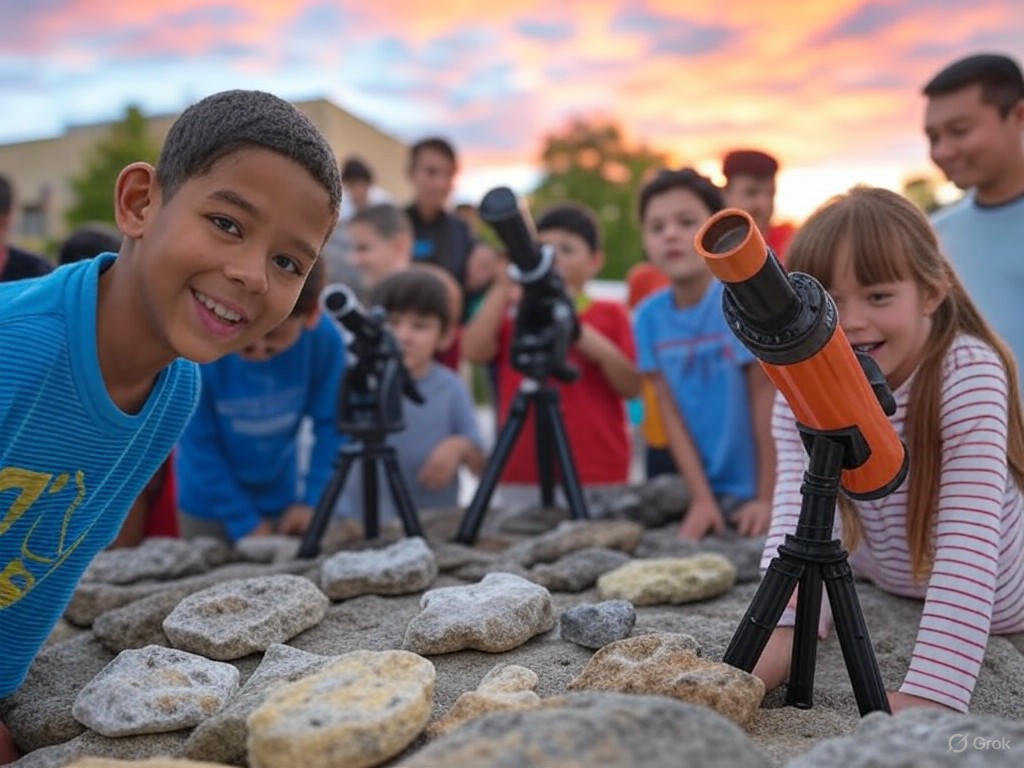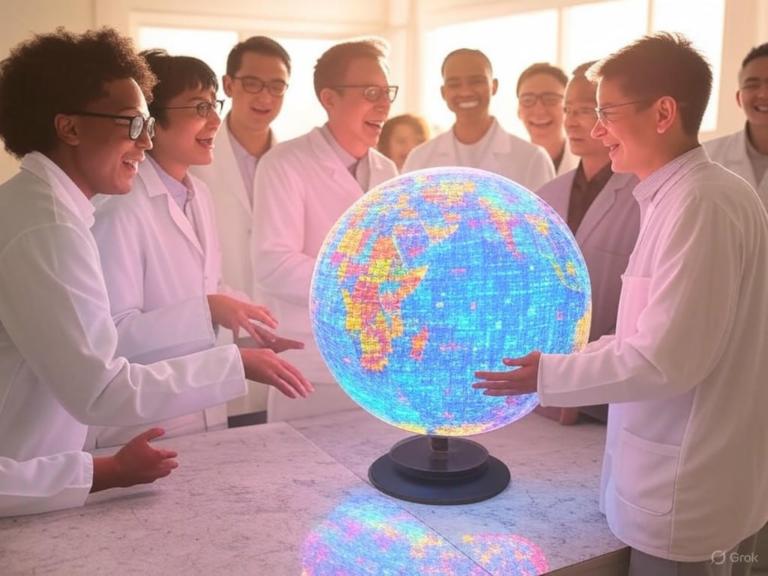
Earth and Space Sciences Annual Open House Details
Explore the Universe at the 2025 Earth and Space Sciences Open House
The Earth and Space Sciences Open House returns in 2025 as a highlight for curious minds, offering a free, interactive dive into the wonders of our planet and beyond. Scheduled for Sunday, April 27, from 1:00 to 3:30 p.m. at Johnson Hall on the University of Washington campus, this event connects families, students, and science lovers with real researchers and hands-on fun. Imagine spending an afternoon examining fossils, peering at the sun through telescopes, or building your own mini-exoplanet—it’s all waiting at this year’s gathering.
Building on last year’s success, the 2025 edition aims to make complex ideas like climate patterns and cosmic exploration feel approachable and exciting. Hosted by the UW’s Department of Earth and Space Sciences, it’s more than just an event; it’s a chance to see how university research shapes our understanding of the world. Have you ever wondered what it’s like to chat with a scientist about asteroid impacts or seismic shifts? This is your opportunity to dive in.
Event Details: What You Need to Know About the Earth and Space Sciences Open House
This annual Earth and Space Sciences Open House is organized by dedicated teams at the University of Washington, turning Johnson Hall into a hub of discovery. Mark your calendar for April 27, 2025, from 1:00 p.m. to 3:30 p.m., where free admission welcomes everyone to explore. Located at 1707 NE Grant Lane in Seattle, WA, it’s conveniently set up with free parking on campus to make your visit seamless.
What makes the Earth and Space Sciences Open House stand out is its blend of education and entertainment, perfect for sparking curiosity in kids and adults alike. Whether you’re a parent seeking family-friendly outings or a teacher looking for inspiration, the event’s accessible location and no-cost entry remove barriers to learning. Think about how easy it could be to turn a Sunday afternoon into a memorable science adventure—just show up and explore at your own pace.
Interactive Activities and Exhibits at the Earth and Space Sciences Open House
The 2025 Earth and Space Sciences Open House features a lineup of booths run by UW experts, blending fun with real scientific inquiry. Expect a mix of returning favorites and fresh additions, all designed to engage visitors through hands-on experiences. From fossil digs to solar observations, these activities turn abstract concepts into tangible lessons.
Hands-On Learning Experiences in the Earth and Space Sciences Open House
Dive into activities like examining authentic dinosaur fossils from the Burke Museum—it’s a thrill to hold a piece of ancient history. Or try solar observation with specialized telescopes, where experts guide you through the sun’s surface details. Have you considered what it takes to engineer against earthquakes? Build structures with marshmallows and test them in simulated shakes for a playful lesson in geology.
Other highlights include creating icy alien worlds to learn about exoplanets or analyzing rocks under microscopes to uncover their stories. These Earth and Space Sciences Open House experiences are crafted for all ages, making science feel interactive and relevant. For instance, splitting rocks with geological hammers teaches proper techniques while sparking conversations about Earth’s layers—it’s educational and surprisingly fun.
Collaborative Partners and Guest Organizations at the Earth and Space Sciences Event
The Earth and Space Sciences Open House thrives on partnerships, bringing in experts from across Seattle to enrich the day. Organizations like the Burke Museum contribute natural history exhibits, while the North Seattle Lapidary & Mineral Club shares tips on gem collecting. This collaboration ensures a diverse array of perspectives, from fossils to minerals, all under one roof.
These alliances make the event more comprehensive, allowing visitors to see how different fields interconnect. If you’re passionate about rocks or space, interacting with representatives from these groups could inspire your next hobby or even career path. It’s a reminder that science doesn’t exist in isolation—it’s a community effort.
Educational Value and Learning Opportunities from the Earth and Space Sciences Open House
Beyond the fun, the Earth and Space Sciences Open House delivers real educational benefits, connecting attendees with current research. You’ll get to chat with scientists about topics like climate change or planetary exploration, turning conversations into eye-opening insights. This setup helps demystify complex subjects, making them relatable to everyday life.
For students, it’s a gateway to career paths in science; for educators, a source of classroom ideas. Imagine discussing global challenges like natural disasters with the experts driving solutions—what could be more motivating? These interactions often lead to lasting inspiration, proving how events like this bridge academic worlds with public curiosity.
Why Attend the Earth and Space Sciences Open House?
In an era of rapid environmental changes, attending the Earth and Space Sciences Open House offers timely insights into pressing issues. This event stands out by making science accessible and enjoyable, whether you’re exploring for fun or learning. Here’s why it appeals to so many.
For Families at the Earth and Space Sciences Open House
Families find the Earth and Space Sciences Open House ideal for shared learning, where kids can build rock pets or design alien landscapes while parents join in. It transforms a simple outing into a bonding experience that might ignite a child’s interest in science. Have you thought about how a hands-on activity could make family time more engaging?
For Educators
Teachers gain practical resources, from activity ideas to potential research collaborations, all tailored to enhance classroom teaching. The event’s networking opportunities could lead to partnerships with UW faculty, enriching your professional toolkit. It’s a smart way to stay ahead in science education trends.
For Students
High schoolers and undergraduates can explore majors in Earth and space sciences, meeting mentors who share real-world advice. Attending might help you visualize a future in research, with tips on scholarships and internships readily available. What if this event sparks the path to your dream career?
For Science Enthusiasts
Curious individuals revel in the exhibits on astronomical phenomena and geological processes, guided by knowledgeable staff. It’s a chance to dive deep into topics that fascinate you, perhaps leading to new hobbies like stargazing.
Planning Your Visit to the Earth and Space Sciences Open House
To maximize your time at the Earth and Space Sciences Open House, arrive early to beat the crowds and hit your favorite exhibits first. Dress comfortably for hands-on activities, and bring questions to make interactions with scientists more meaningful. Consider carpooling for easy access to campus parking.
With self-guided exploration, you can tailor the experience to your group’s interests—whether that’s focusing on space or Earth sciences. Pro tip: Snap photos of the activities to revisit later and extend the learning at home.
The Impact of Earth and Space Sciences Open Houses
Events like the Earth and Space Sciences Open House play a vital role in public education, inspiring future scientists and fostering community ties. They translate cutting-edge research into engaging formats, helping attendees grasp global issues like climate resilience. Over the years, these gatherings have sparked countless interests and collaborations.
By bridging academia and the public, they encourage a deeper appreciation for science’s role in society. For example, past attendees have gone on to pursue STEM careers, showing the event’s long-term influence.
Similar Events and Opportunities Beyond the Earth and Space Sciences Open House
If you’re hooked on science events, explore options like Arizona State University’s Earth and Space Exploration Evening in October 2024. This free gathering features talks, exhibits, and stargazing in Tempe, Arizona, as hosted by leading institutions.
For deeper dives, check the AGU Annual Meeting in December 2025 in New Orleans, where global experts share research. These events complement the local Earth and Space Sciences Open House by offering varied perspectives.
Conclusion: Don’t Miss This Educational Adventure
The Earth and Space Sciences Open House on April 27, 2025, promises an unforgettable mix of fun and learning for all ages. Whether you’re discovering new interests or sharing knowledge with loved ones, it’s a event not to miss. We encourage you to comment below with your thoughts or share this post to spread the word—what excites you most about attending?
Explore more science events on our site or dive into related topics for continued inspiration. Your participation helps build a vibrant community around Earth and space sciences.
Sources
- UW Environmental Studies Events. (n.d.). Retrieved from https://envstudies.uw.edu/news-events/events/?trumbaEmbed=view%3Devent%26eventid%3D180876167
- UW ESS Open House. (n.d.). Retrieved from https://ess.uw.edu/alumni-community/ess-open-house/
- UW Intranet ESS News. (n.d.). Retrieved from https://intranet.ess.washington.edu/content/news_events/?eventid=174266739&format=print&trumbaEmbed=view%3Devent%26eventid%3D180876167
- ASU Exploration Evening. (n.d.). Retrieved from https://scitechinstitute.org/events/arizona-state-university-earth-and-space-exploration-evening-and-open-house/
- AGU Annual Meeting. (n.d.). Retrieved from https://www.agu.org/annual-meeting
Earth and Space Sciences Open House, UW Open House, science activities for families, Johnson Hall events, hands-on learning, Earth science education, interactive science exhibits, family-friendly science events, UW science outreach, space sciences exploration







